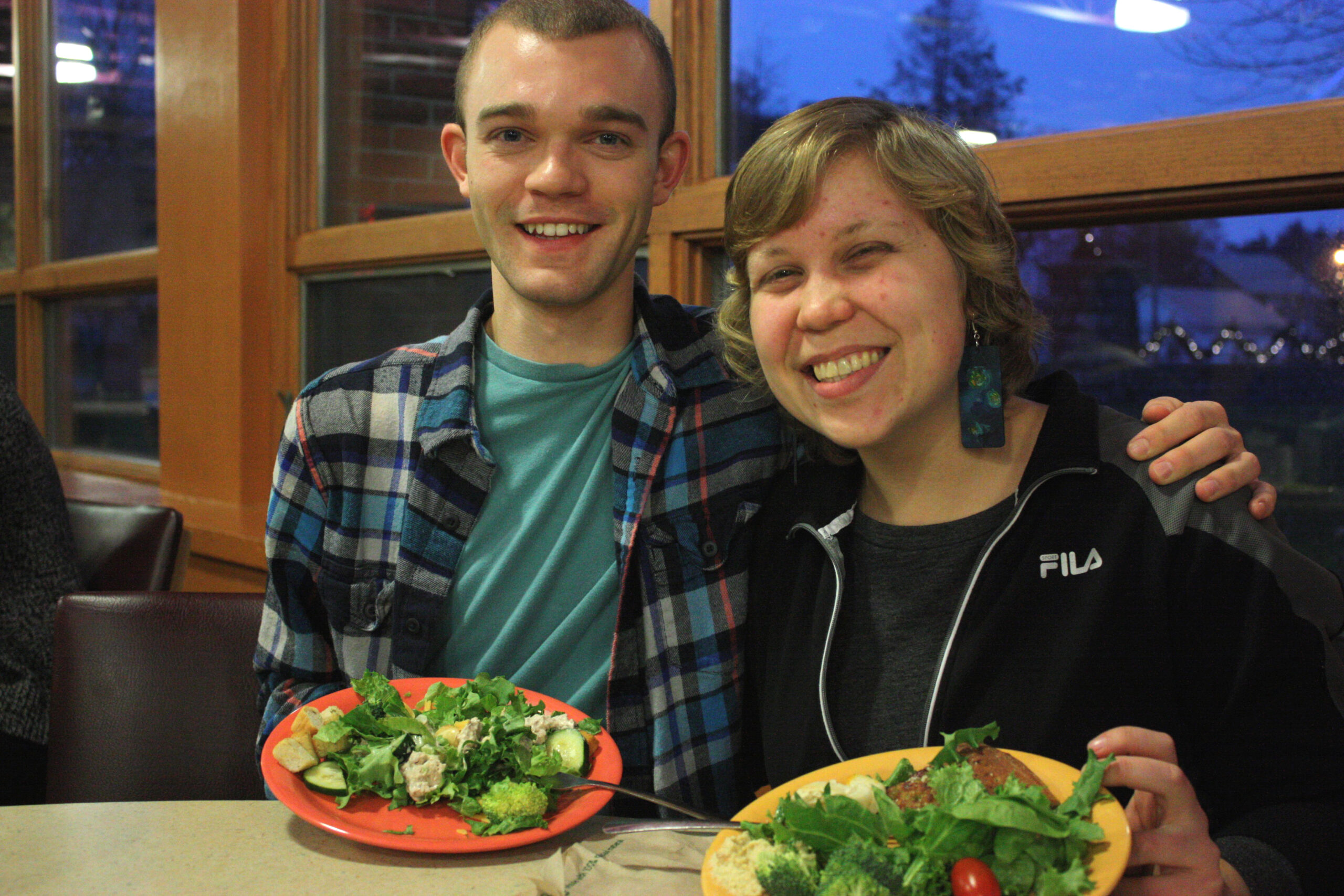Garlic, green onions and fresh tomatoes sizzled in olive oil on the stove in Ida Short’s kitchen.
“I’ve never made this before, so it’ll be like an adventure,” Short said, emptying a can of white beans into the pot. She then added half of a box of pasta shells and an array of spices—parsley, chili powder, oregano, cilantro, sea salt and black pepper.There wasn’t anything unusual about supper in Short’s apartment that evening. But someone else might ask, “Where’s the meat?”
Short has been a vegetarian since seventh grade. “I started being vegetarian for Lent, and then when Lent was over, I just never stopped,” she said. “It was actually very easy.”
Short said that she doesn’t like the texture of meat. She added, “My family had chickens as pets growing up. We used to name them when I was little, so that might have had an effect.”
“I really did grow up cooking,” she said. “We would garden during the summer, so it was really cool to plant things, pick things and then cook with them.”
Short and her fellow vegetarian apartment mate, Anna van der Zwaag, agreed that fresh produce tastes better than produce from the grocery store. Van der Zwaag enjoyed buying vegetables from the Merry Lea produce stand, which was set up on campus each Friday afternoon earlier in the semester.
Said van der Zwaag, “Merry Lea was good because it was affordable with the student discount. When you go grocery shopping, you want the good things, but you need to be realistic about what you can and cannot afford.”
Van der Zwaag has been vegetarian for over 10 years. Her meatless diet started out as a competition with her sister.
“I don’t think my reasons were that great, but they’ve evolved,” van der Zwaag said.
“Before Goshen, I felt almost judged by my decision, because I was the only vegetarian that people knew,” said van der Zwaag. “Here, everyone understands it. I don’t have to justify it.”
Bobby Switzer, another vegetarian on campus, agreed that the perception of vegetarians in Goshen is different than in his hometown of Berne, Ind.
“People are just more mindful about vegetarian diets here,” Switzer said. “At home, when I’d go to someone’s house, they wouldn’t really know what to cook, so I’d end up eating sides, like potato salad. I’m sure almost every vegetarian has made a meal out of bread and chips and ketchup before.”
Switzer said that Westlawn Dining Hall’s vegetarian options are better than many other college cafeterias, but there is room for improvement. He wishes there was more variety in the vegetarian entrees, particularly the veggie burgers and meatless pizzas.
“I’m sorry, but dessert pizza is not an option for a main course,” Switzer said. “I’d like to see a vegetable pizza for once.”
Switzer remembered the exact day he became a vegetarian: June 22, 2007. One day at Boy Scout camp, he just decided he was not going to eat any more meat.
Switzer said, “I didn’t necessarily like meat. I’ve always been a salad type of guy.”
A question Switzer has heard often is “How do you get protein?” Switzer replied, “Where do cows get their protein?” He said that many foods contain protein, like beans, nuts, soy products, cheese and even vegetables.
As with Short and van der Zwaag, Switzer’s reasons for vegetarianism developed as time went on.
Said Switzer, “I found that… if I could live my life without causing more pain in the world, I should do that.”
Even in Goshen, Switzer has encountered some resistance to vegetarianism.
“There are some people who play the theology card,” he said. “Sometimes people bring up that God gave people dominion over animals for food, so if you don’t eat them, you’re disobeying God.”
However, Switzer interprets things differently.
“I think Mennonites should really consider vegetarianism as a standard, just because it’s a nonviolent form of living,” he said.
Switzer remained vegetarian when he went on Study-Service Term to Nicaragua last summer.
“Meat there is different,” he said. “You don’t have it at every meal.”
Although his host families thought that his vegetarian diet was “a little weird,” they were very accommodating.
“Maybe that’s because I belabored on my sheet, ‘Does not eat meat. Will not eat meat. Please don’t feed meat,’” he said.
Switzer tried to abstain from eating food that had been cooked with meat while he was in Nicaragua, but sometimes the task proved difficult. Once, he had eaten half a bowl of soup when he found out that it had meat broth in it.
Switzer admitted, “Sometimes I forget that people eat meat.”



